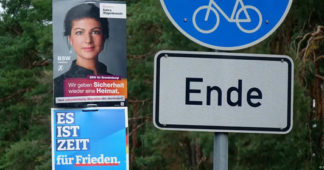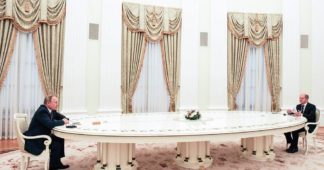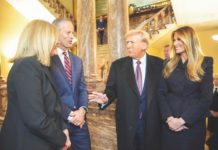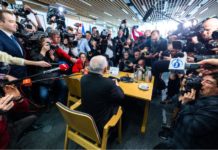Wed 11th Jun, 2025
In a bold move that has stirred political discourse in Berlin, several prominent members of the Social Democratic Party (SPD) are calling for a significant shift in Germany’s foreign policy. Their proposal, outlined in a manifesto, advocates for a departure from the current arms buildup strategy and emphasizes the importance of initiating direct diplomatic discussions with Russia.
The manifesto, which has been reviewed by the Deutsche Presse-Agentur, has raised eyebrows within the SPD and critiques its leadership, particularly that of Vice Chancellor Lars Klingbeil. It highlights the urgent need for a new approach to foreign and security policy, arguing that Europe is currently far from achieving a stable peace and security framework. The authors of the document, often referred to as the SPD peace circles, are pushing for de-escalation and the establishment of trust over a continuation of the arms race.
Among the prominent signatories are former parliamentary leader Rolf Mützenich, ex-party chief Norbert Walter-Borjans, and foreign policy expert Ralf Stegner, alongside various members of the Bundestag and state parliaments. However, it remains unclear whether all of the more than 100 signatures come exclusively from SPD members.
The timing of the manifesto’s release is particularly significant, coinciding with an upcoming party congress where the SPD will not only elect new leadership but also begin discussions for a new party program following a disappointing showing in the recent federal elections. This comes just ahead of a NATO summit that is expected to focus on substantial increases in defense spending.
The signatories of the manifesto are urging a revival of dialogue with Russia, proposing that, following a cessation of hostilities, it is vital to re-engage in discussions aimed at establishing a universally respected peace and security order in Europe. They assert that before any genuine confidence-building measures can be taken, there needs to be a cautious re-establishment of diplomatic channels.
Notably, the manifesto does not address the lack of interest shown by Russian President Vladimir Putin in a ceasefire, nor does it reference the unproductive communication attempts made by former Chancellor Olaf Scholz in November, which were dismissed by Putin. The document also overlooks Putin’s previous rejections of mediation efforts from figures such as former U.S. President Donald Trump.
Furthermore, the SPD peace circles express opposition to the deployment of new American medium-range missiles in Germany, as well as any proposals to raise the defense budget to 3.5 or 5 percent of the country’s GDP. They argue that the current narrative is pushing for an arms race under the guise of preparing for a supposedly imminent conflict, instead of prioritizing defense capabilities through arms control and disarmament initiatives.
The signatories caution that militaristic rhetoric and extensive rearmament programs do not enhance security for Germany or Europe but rather exacerbate destabilization and increase mutual perceptions of threat between NATO and Russia.
Reactions from other political factions have been swift and critical. Union foreign policy spokesperson Roderich Kiesewetter expressed disbelief at the call for negotiations with Russia, while Green Party parliamentary leader Britta Haßelmann emphasized that the desire for peace is shared by all, particularly those affected in Ukraine. She noted that Putin has consistently thwarted attempts at achieving a ceasefire or peace talks, suggesting that the SPD manifesto fails to acknowledge the serious realities of the current situation.
The SPD has been grappling with its historical approach to Russia for some time, and the forthcoming party congress is expected to bring these issues to the forefront. Key stakeholders are keen to see how party chief Klingbeil will respond to this internal challenge and what stance the SPD will take in its upcoming policy framework.
FDP European politics spokesperson Marie-Agnes Strack-Zimmermann has called for an immediate clarification from the SPD leadership regarding the manifesto, criticizing the silence from Klingbeil and Miersch as deafening.
We remind our readers that publication of articles on our site does not mean that we agree with what is written. Our policy is to publish anything which we consider of interest, so as to assist our readers in forming their opinions. Sometimes we even publish articles with which we totally disagree, since we believe it is important for our readers to be informed on as wide a spectrum of views as possible.











